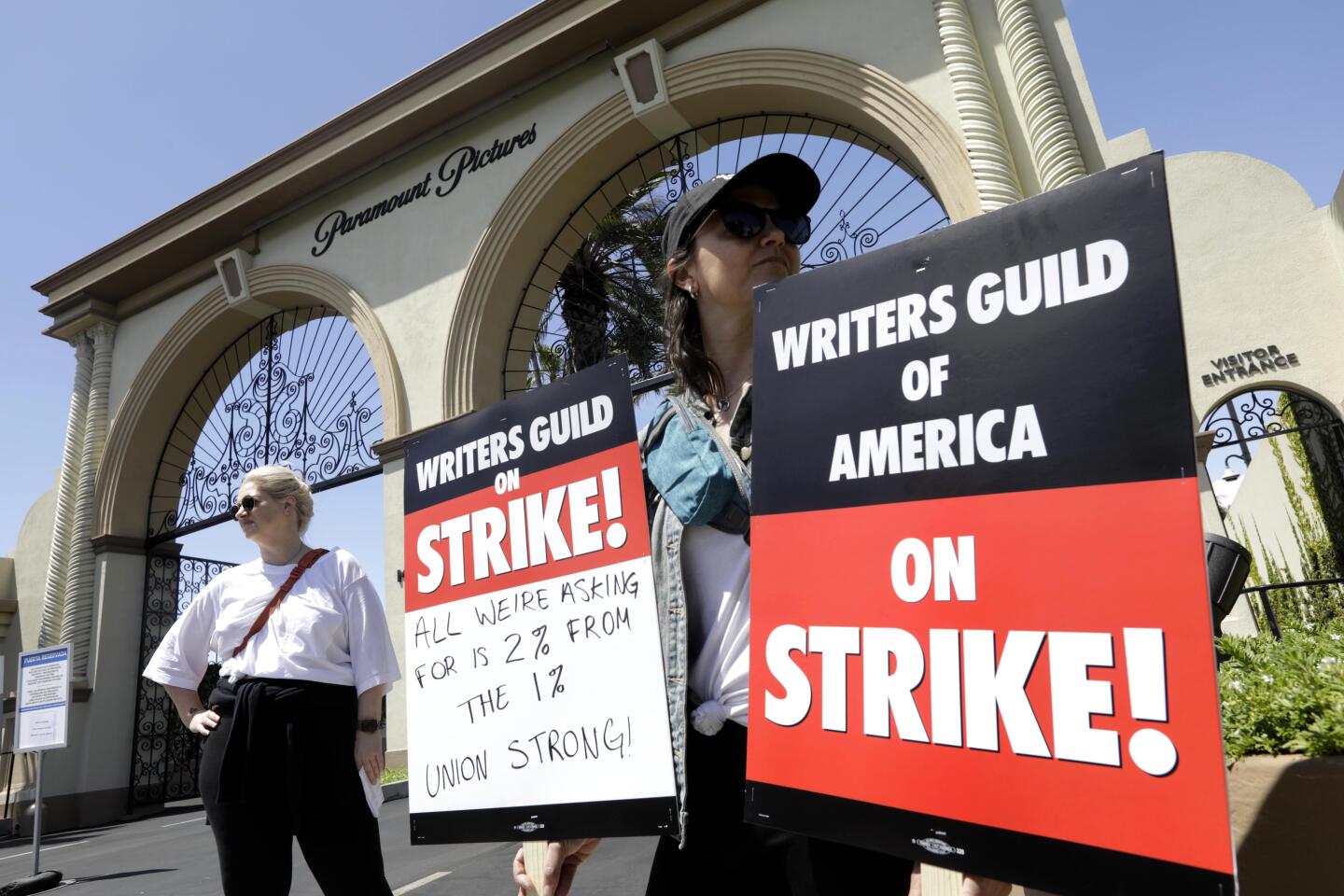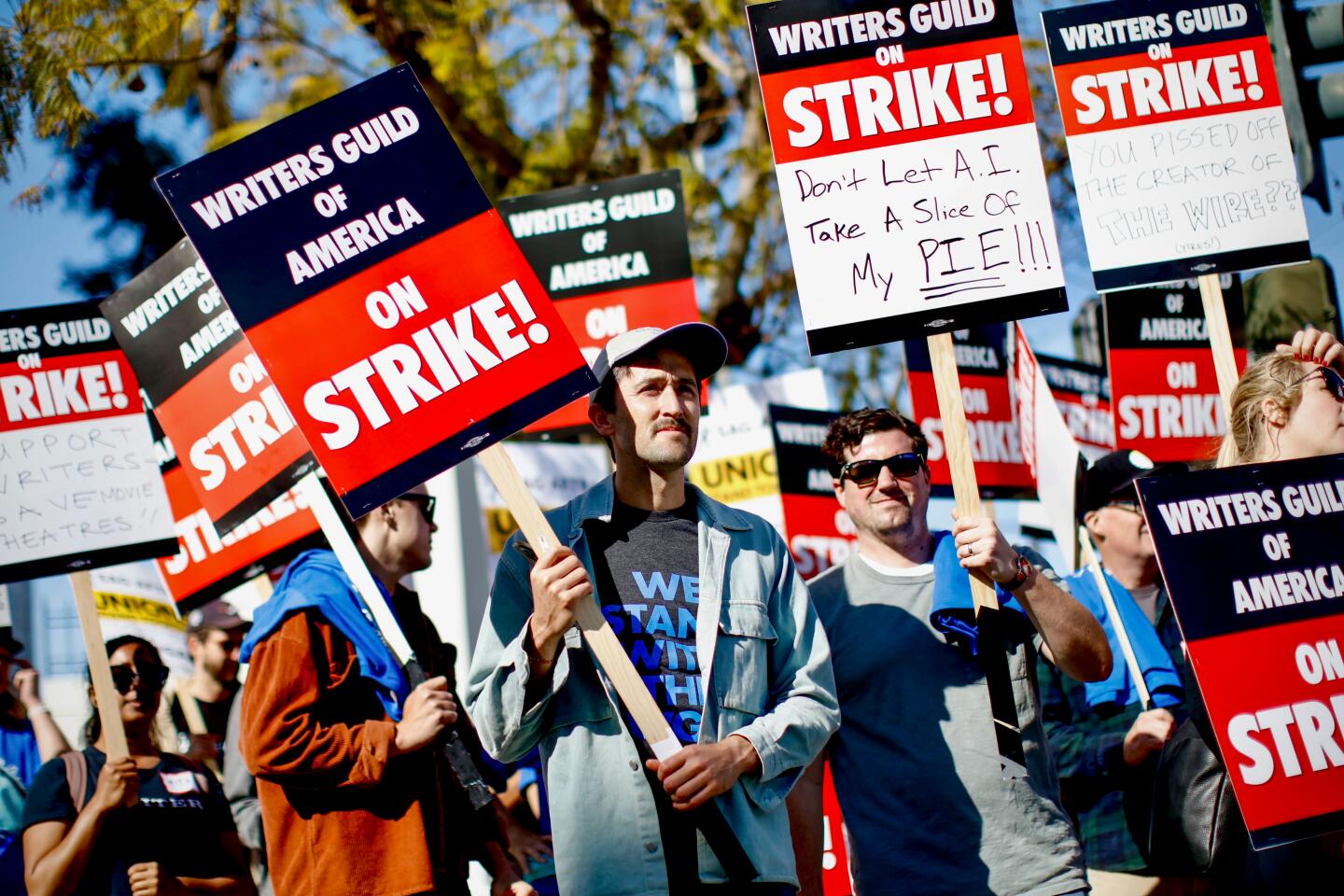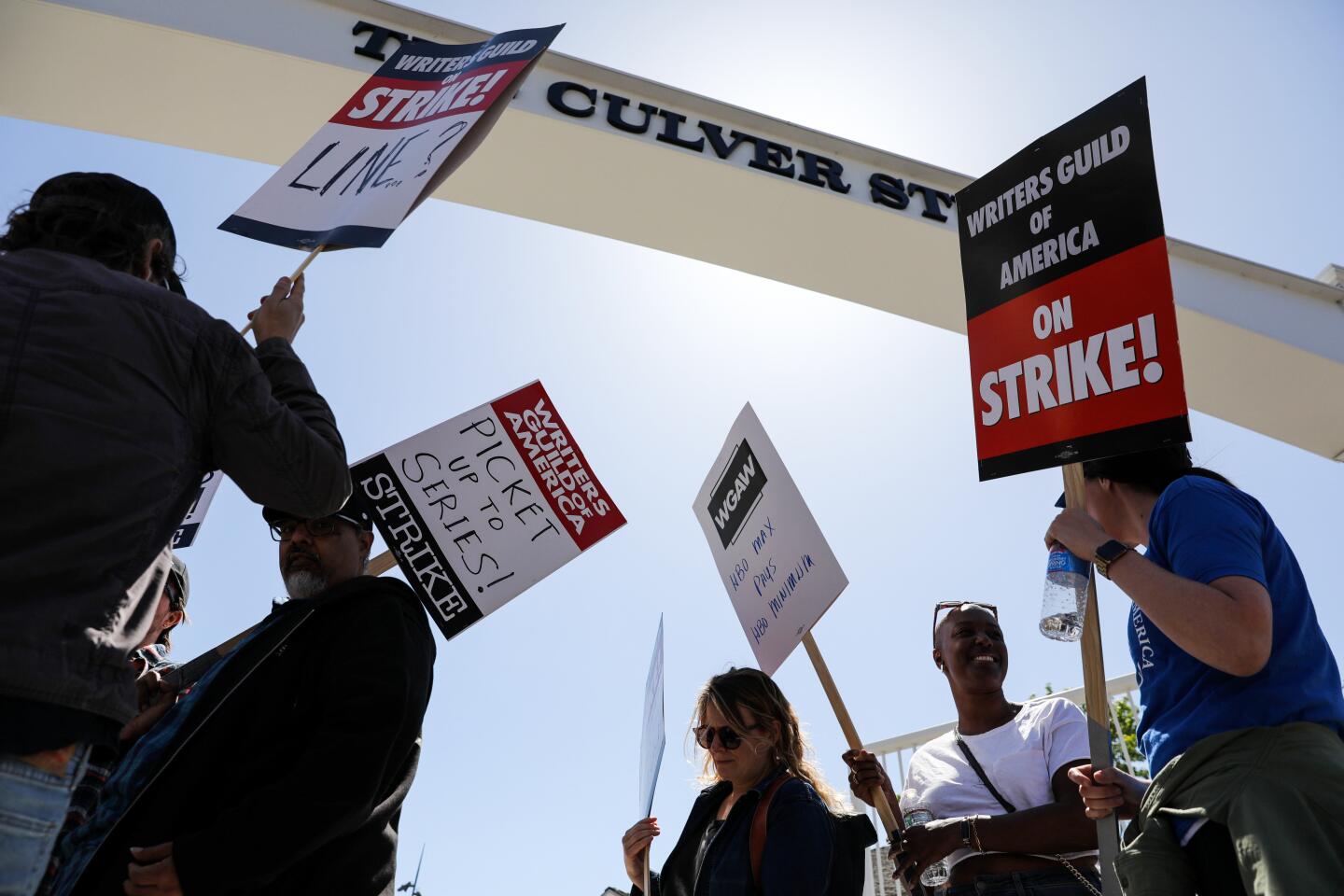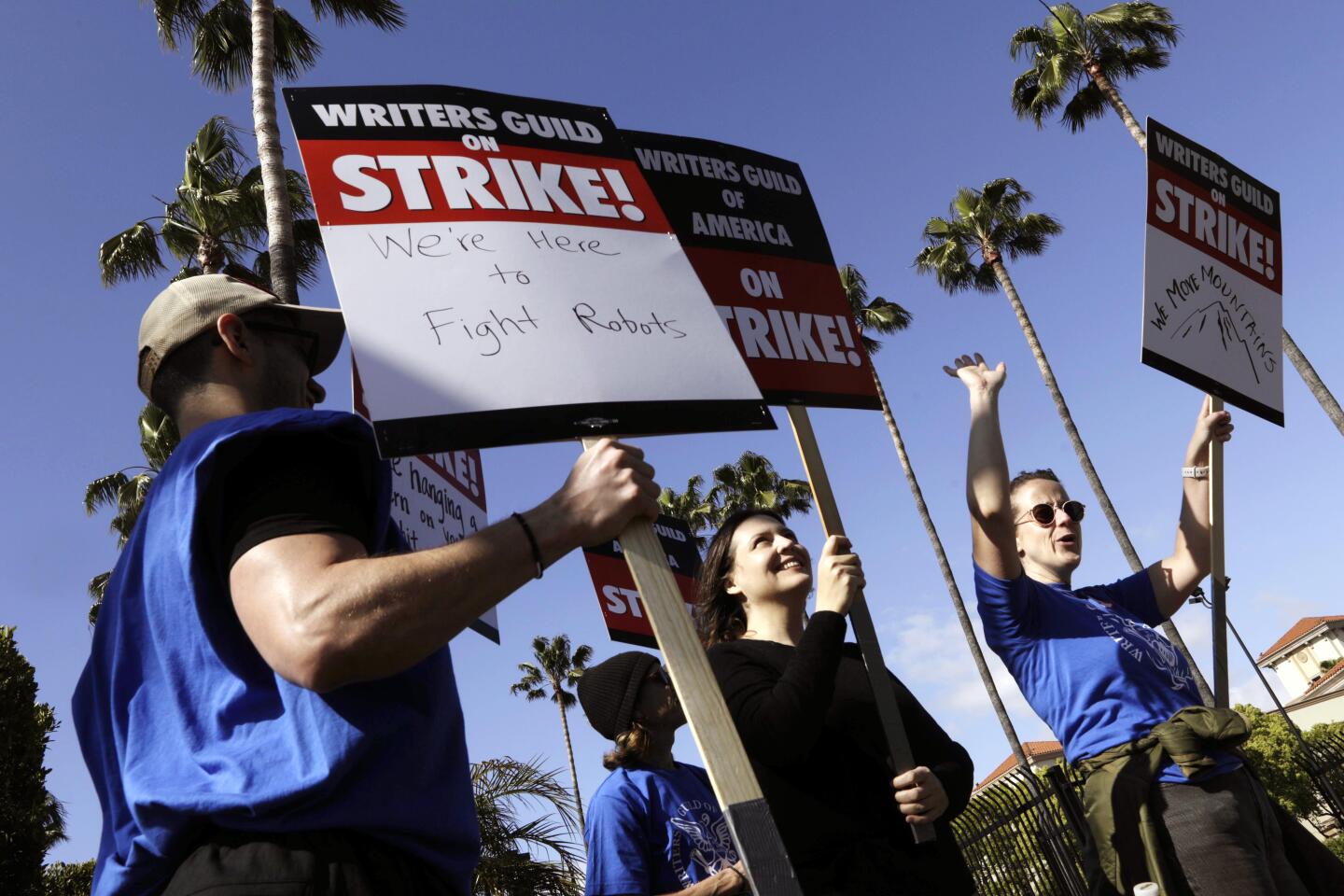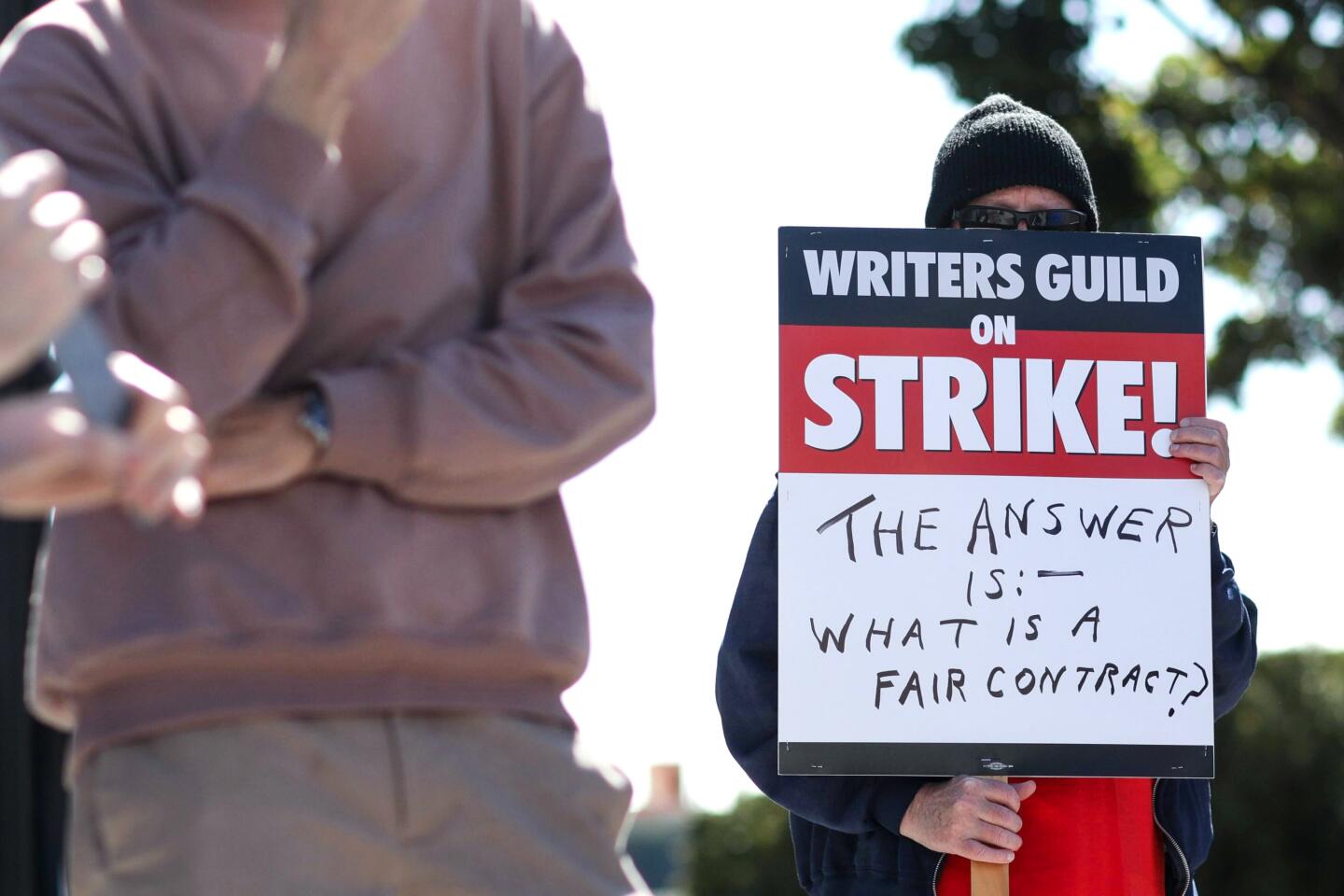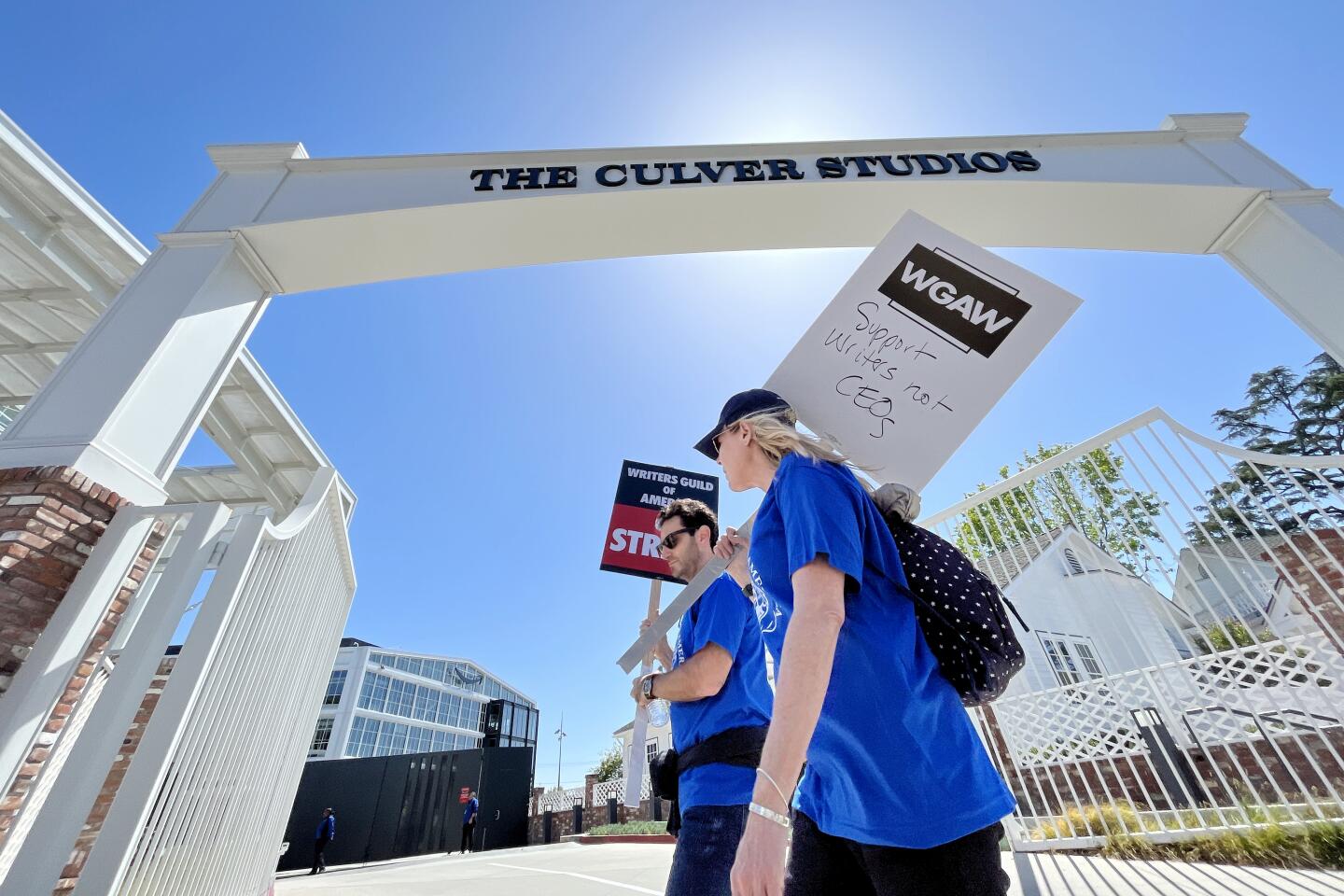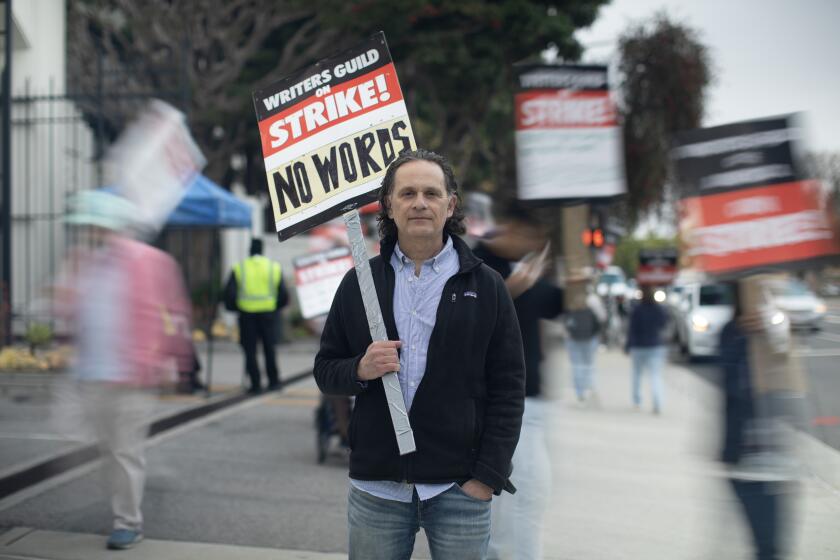Writers’ strike: Here are some of the cleverest signs from the WGA picket lines
- Share via
The writers are on strike, but that doesn’t mean they’ve stopped writing.
Thousands of film and television writers with the Writers Guild of America who picketed in front of major studios and production hubs in New York and in the Los Angeles area on Tuesday announced their first walkout in 15 years with premade signs that read, “Writers Guild on strike!”
Below that message, however, the signs included empty white space, so organizers distributed black permanent markers. The writers then took to the blank canvas to do what they do best.
Hollywood’s writers have gone on strike for the first time in 15 years amid a sea change in the way content is being distributed and creators are being compensated.
And the results ranged from furious to hilarious. Some poked fun at studios’ streaming-era missteps, others expressed anxiety about the use of artificial intelligence and many delivered clear messages about one of their core demands: fair compensation for the work they do.
Here are some messages from the picket lines that caught our eye.
AI anxiety
Before talks fell apart, the WGA asked for assurances from major Hollywood studios that artificial intelligence would not replace screenwriters.
They proposed that AI-generated text not be used as source material or to rewrite work that is covered by the union’s contract, that AI work cannot be considered in determining writing credits and that writers may not be assigned AI-generated material to adapt.
The Alliance of Motion Picture and Television Producers, which represents the studios in labor relations, assured the WGA at the bargaining table that the current contract language already protected writers, according to a person familiar with the negotiations. AMPTP countered by offering to meet annually to discuss how AI is advancing and to approach things on a gradual case-by-case basis, the source said.
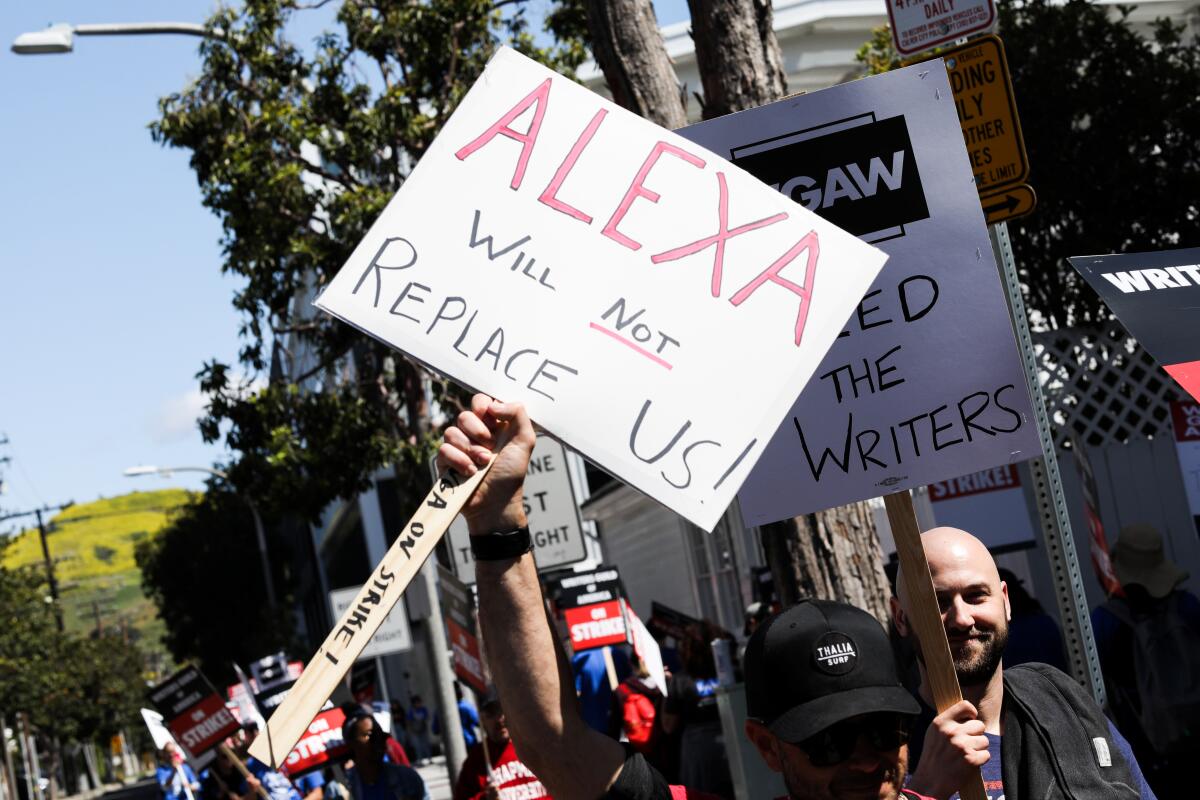
“It is important to note that AI software does not create anything,” the WGA tweeted in March. “It generates a regurgitation of what it’s fed.”
Writers carried some of that AI anxiety to the picket lines with sardonic messages, including “Alexa will not replace us!” and “Alexa, pay me!,” referring to the Amazon bot; “Wrote Chat GPT this,” a jab at the ubiquitous AI software; “Don’t let AI take a slice of my pie”; and “You can’t solve the problem of AI with a training video.”
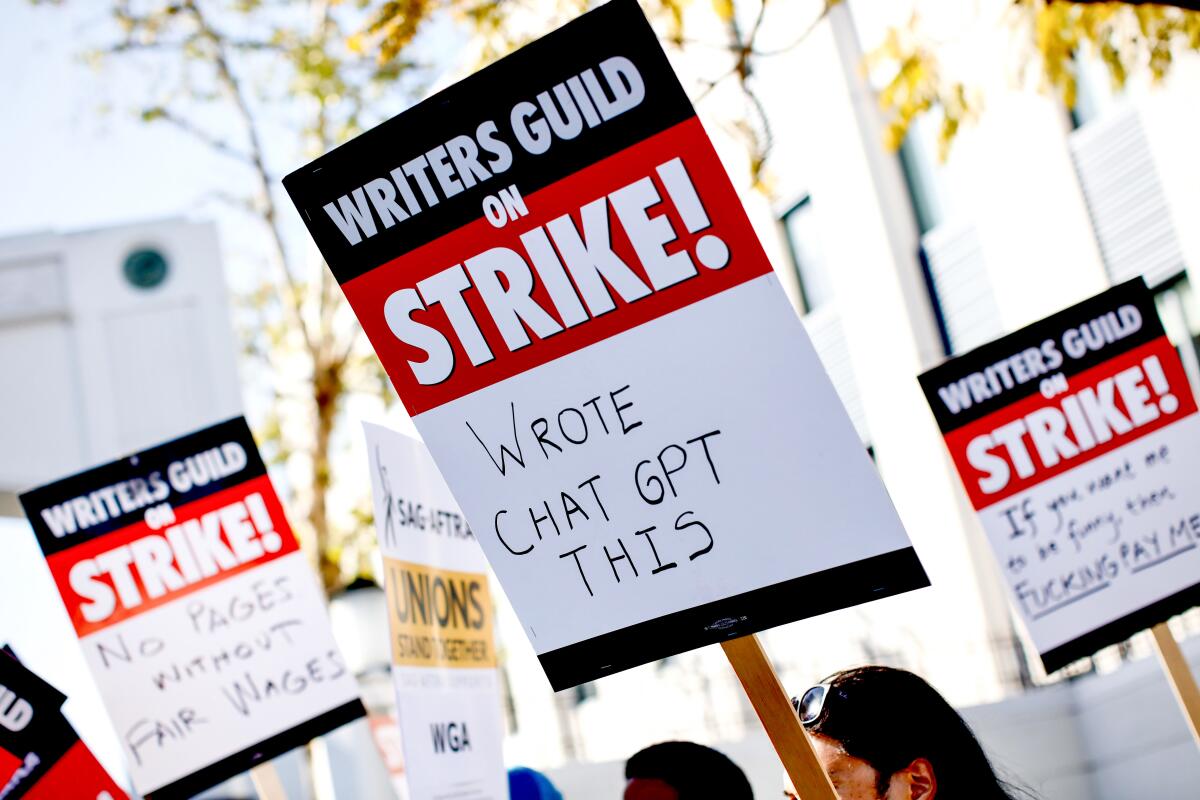
Rage against the machine
WGA members argue that they can’t survive off of what they earn from writing shows and films in a digitally disrupted industry. Despite increasing profits for studios amid the streaming boom, writers are getting paid less to do the same work, the union says. Writers also said they are receiving lower residuals, or royalties, for their work once a show re-airs.
Just before the strike began as contract talks disintegrated Monday evening, the studio alliance said it had offered the guild “generous increases in compensation for writers as well as improvements in streaming residuals.”
Some striking writers expressed their thoughts without mincing words:
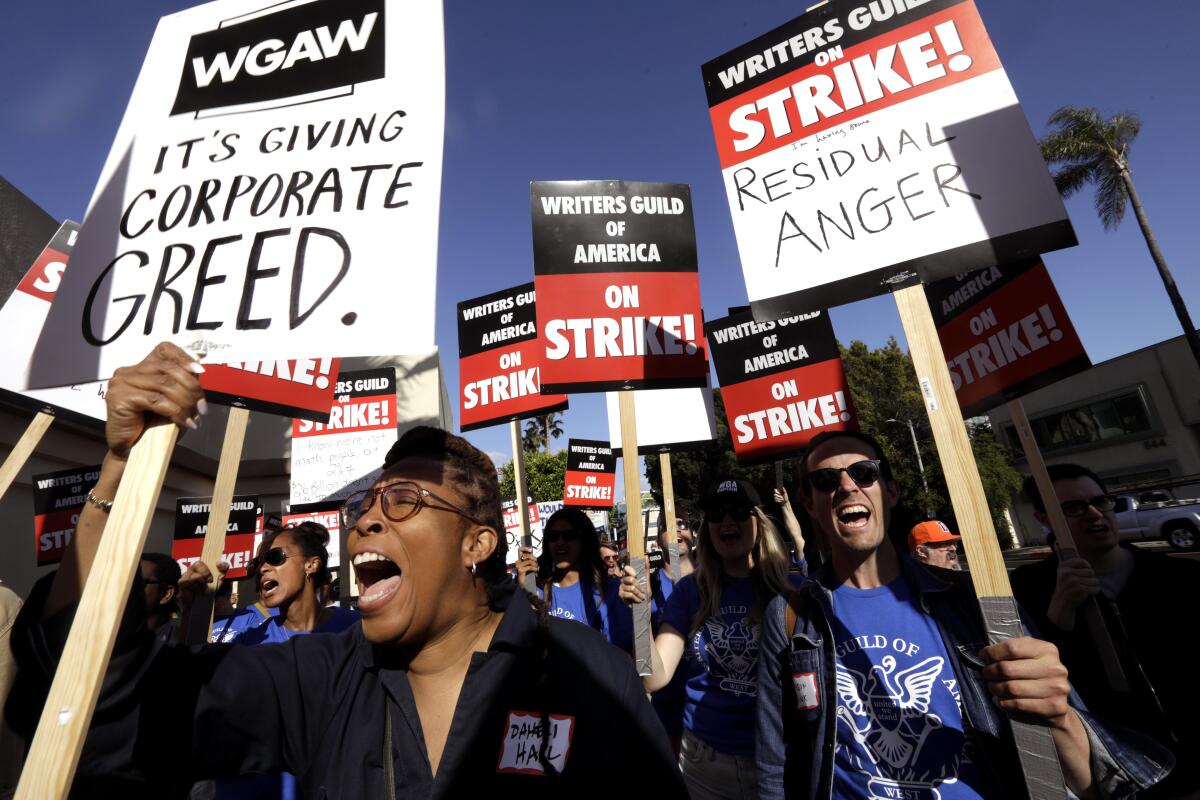
“We came here to live the dream not lose it all to stream.”
“Here’s a pitch: pay us!”
“Nobody puts WGA in a corner.”
“Residual anger.”
“Writers make studios rich — studios make writers strike.”
“It’s giving corporate greed.”
And “Pencils down, middle fingers up,” said one, a play on the chant that was present at picket lines on Tuesday, “Fists up, pencils down, L.A. is a union town.”
Comedy writers came out to play
Struggling to survive in one of the nation’s most expensive cities, as the writers say they are, is not funny. But there is always space for humor. Or, as comedian, “Reservation Dogs” actor and Native rights and climate activist Dallas Goldtooth said, “If we can laugh at our oppressors, it takes away the power of our oppressors.”
WGA members took on that credo and let their humor fly on their signs:
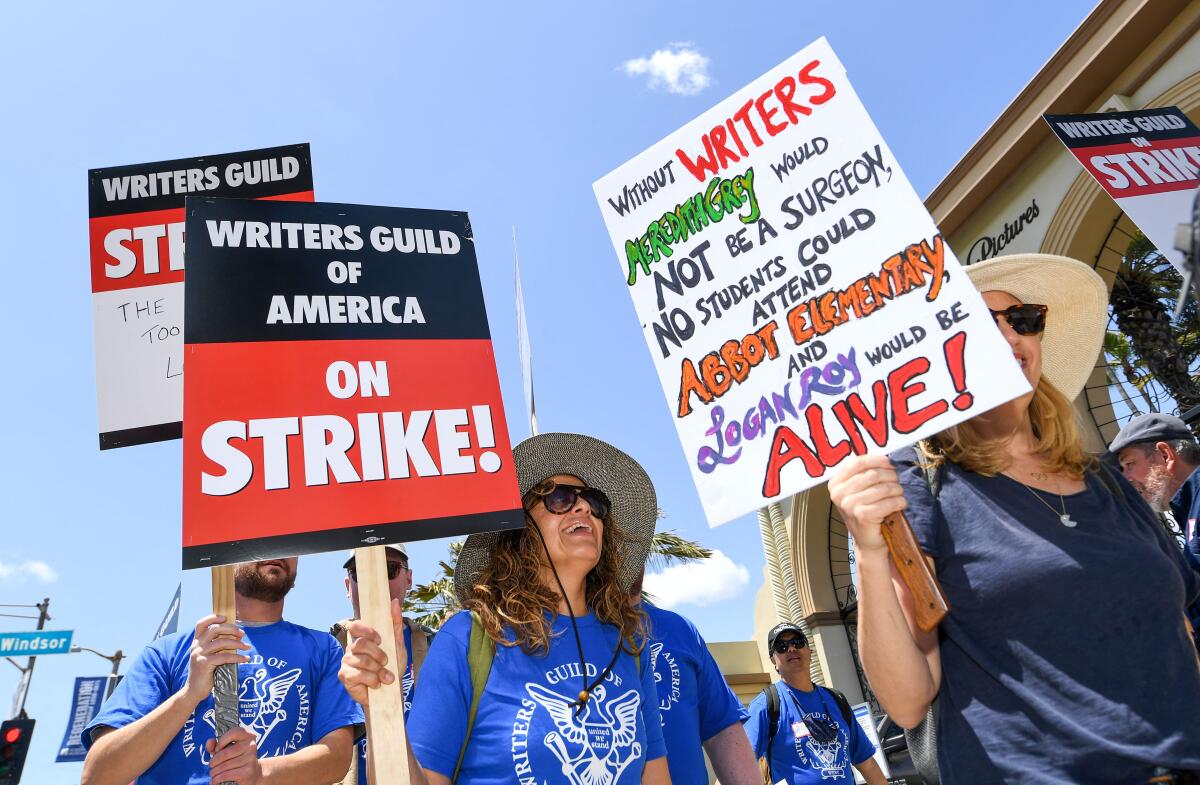
“Pay your writers, or we’ll spoil ‘Succession.’”
“WGA vs. Succession characters.”
“Without writers, Meredith Grey would not be a surgeon, no students could attend Abbott Elementary, and Logan Roy would be alive!”
“Without writers, Jenna Ortega will have nothing to punch up!”
“And you thought the ‘Save OA’ people were annoying,” writer-director Joshua Conkel wrote.
“Give up just one yacht,” comedian, actor and writer Jenny Yang implored.
“You came up with Quibi,” another sign said, referring to the high-profile, short-form streaming service that burned through more than $1 billion in investment before failing less than seven months after its launch.
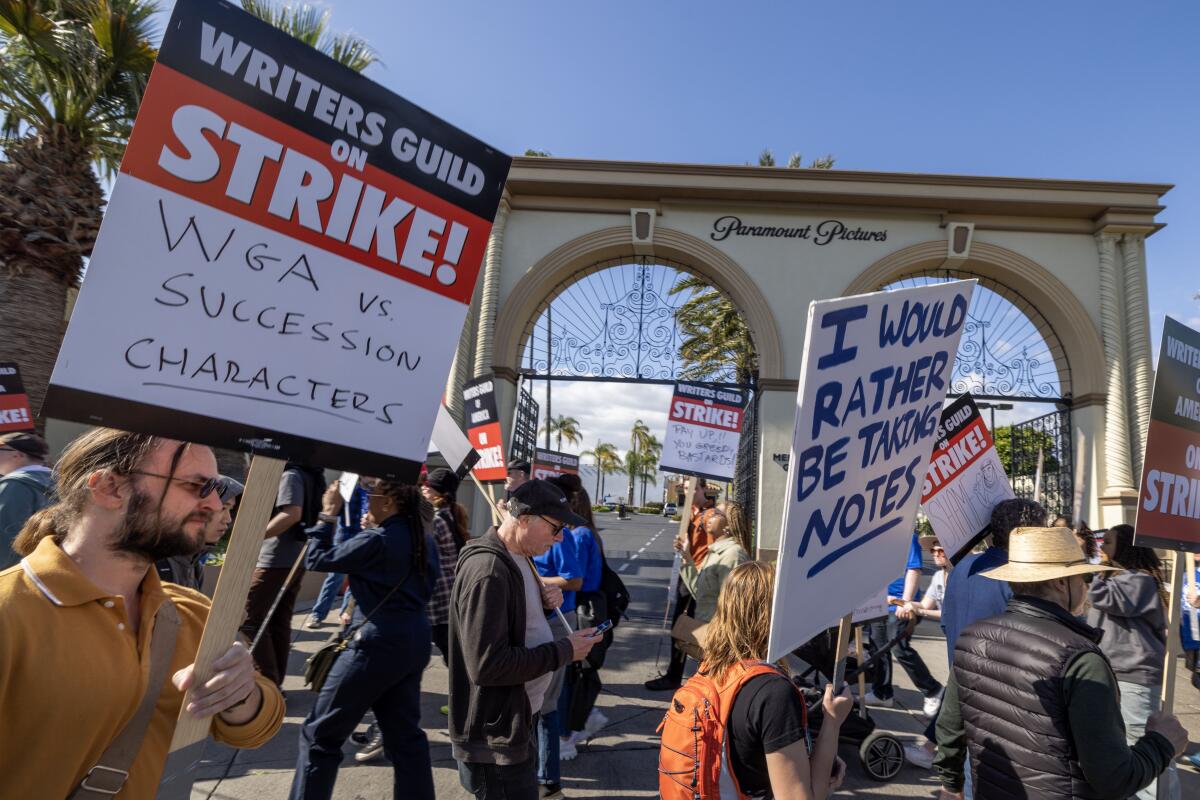
More to Read
Inside the business of entertainment
The Wide Shot brings you news, analysis and insights on everything from streaming wars to production — and what it all means for the future.
You may occasionally receive promotional content from the Los Angeles Times.

